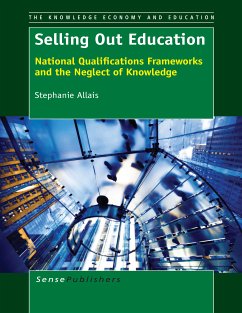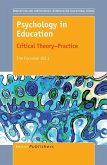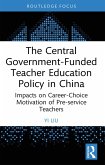Selling Out Education argues that basing education policy on qualifications and learning outcomes-dramatized by the phenomenal expansion of qualifications frameworks-is misguided. Qualifications frameworks are intended to make education more responsive to the needs of economies and societies by improving how qualifications and credentials are used in labour markets. But using learning outcomes as the starting point of education programmes neglects the core purpose of education: giving people access to bodies of knowledge they would not otherwise have. Furthermore, instead of creating demand for skilled workers through industrial and economic policy, qualifications frameworks are premised on the flawed idea that a supply of skilled workers leads to industrial and economic development. And skilled workers are to be supplied not by encouraging governments to focus attention on creating, improving, and supporting education institutions, but by suggesting that governments take a quality-assurance role. As a result, in poor countries where provision is weak to start with, qualifications have been created and institutions established to monitor providers without increasing or improving education provision. The weaknesses of many current policy approaches make clear, Allais argues, that education is inherently a collective good, and that the acquisition of bodies of knowledge provide the basis for its integrity and intelligibility.
Dieser Download kann aus rechtlichen Gründen nur mit Rechnungsadresse in A, B, BG, CY, CZ, D, DK, EW, E, FIN, F, GR, HR, H, IRL, I, LT, L, LR, M, NL, PL, P, R, S, SLO, SK ausgeliefert werden.









